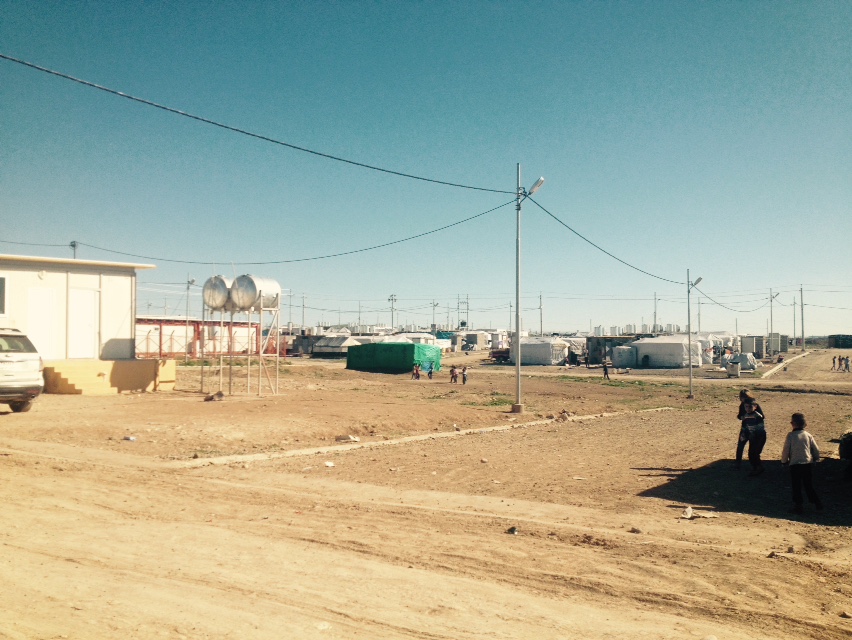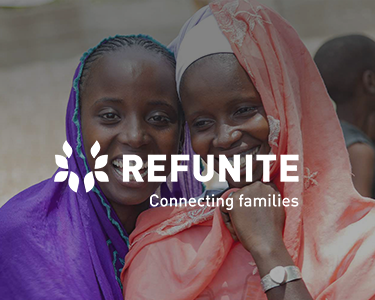
This is the second part of a three-part blog series by REFUNITE’s Middle East Project Manager, reflecting on her findings from a recent trip to Iraq. This post focuses on missing relatives.
Stories of Separation in Iraq
* Any names of interviewees used have been changed to protect their identities.
These are a few stories of people displaced by ISIS in Iraq searching for their missing loved ones.

I recently had the opportunity to meet with Syrian refugees and Iraqi internally displaced persons (IDPs) in the Kurdistan Region of Iraq (KRI), located in the north-east of the country, to learn more about their need for a family tracing service like REFUNITE. We were also interested to find out through what channels people would be able to access REFUNITE, as well as how people typically communicated with family and friends. This led to some fascinating insights about how people get online explored in a recent blog post.In this second post of the series, I’ll be focusing on people’s personal stories of being separated from loved ones. For privacy reasons and to keep people’s anonymity, I will not use real names or share photos of the individuals.

The KRI is perhaps one of the most beautiful places I have ever had the privilege of visiting. Spring was in full bloom in mid-March, the land was green with lush grass, the sky clear. Yet, in the midst of the serene landscape, people’s stories of separation were particularly horrific, and sadly quite common. Hearing these stories is a vital part of our research journey at REFUNITE. In order to understand how we might help reconnect people, it is important to learn how they came to be separated in the first place, and what they know about the situation of their missing loved ones. The deeply personal stories varied, but patterns emerged along urban/rural, ethnic and religious lines. Below I’ll share Hussein and Ayesha’s stories with you.

Hussein
A man in his 50s and a respected leader in his community, Hussein, like many Yazidis, fled Sinjar city in August 2014. From the January to August 2014, an ISIS offensive captured a lot of territory in northern Iraq, including the large and strategically important city of Mosul. This led to the internal displacement of more than 1.3 million Iraqis according to the UN’s International Organization for Migration – including Hussein.
Hussein was with his family in one car and his brother’s family was in another as they fled their homes to seek safety, staying in touch with each other by phone. When they finally reached a safer area, Hussein realised his brother was nowhere to be found. The road they had taken to the safe Yazidi-controlled mountains partly ran through territory captured by ISIS. Fearing the worst, Hussein called his brother’s phone. A stranger- someone he presumed was from ISIS – answered.
After Hussein’s brother and his family were captured by ISIS, they initially had a chance to connect with their relatives, but only because one family member hid their mobile phone and used it in secret. They feared for their lives if they were caught, but it was worth the risk to stay in touch. Then, eight months ago, they lost connection. One day they could reach their relatives, the next day they called and there was no answer. They tried again and again, but no-one answered.
Hussein was particularly concerned about his nieces. Although he did not talk about it, we both knew of the horrific experiences of Yazidi women captured by ISIS. Fortunately, in the early days of their capture, two of Hussein’s brother’s older daughters escaped ISIS in Sinjar city and fled to Yazidi forces in the mountains. Three months after Hussein’s relatives were captured, his 14 year old niece was taken to the Syrian city of Raqqa, the main center of ISIS control. She managed to escape and fled to Hasakah governorate in north east Syria, to an area that was controlled by Kurdish and Yazidi fighters. They used their networks and contacts to locate her uncle Hussein. He immediately picked her up in his car, bringing her back to the camp to live with his family. Meanwhile, Hussein said that his two older nieces who escaped first are now resettled in Germany.
The whereabouts and wellbeing of Hussein’s other captured relatives is still uncertain. In January 2016, he received a call from a unknown person notifying him that ISIS had moved his relatives from Sinjar to Mosul, specifying their location near a well-known mosque. The person was asking for $10,000 in exchange for the return of his relatives. Although an exorbitant sum, Hussein has been seeking the help of the community to collect the money, but has not heard from the caller again.
Desperately wanting to reunite with his brother’s family, Hussein sought out people who had recently escaped from ISIS in the hope of learning about his relatives. He also tried to search for them by calling in favors with old neighbours, who as Sunni Muslim Arabs were able to remain in Sinjar in relative safety when ISIS took over. As a community leader, he has himself received calls from others in the Yazidi community, telling him about their missing relatives and asking for his help. He said, “I try in any way I can, but really, what can I do to help?”.
—
Hussein’s story resonated with other stories we heard from displaced Yazidis now living in IDP camps in the Kurdistan Region of Iraq. No one expected ISIS to advance and gain territory as quickly as they did. This meant that many families had to suddenly flee in early August 2014. Many who made it to safety had relatives missing. Everyone knew someone who was separated from family members. Like Hussein, other Yazidis are also being contacted for ransom for their families.We also met other people who were able to stay in touch at first by communicating covertly with relatives in ISIS-held territory, but often this had not lasted very long.

Ayesha
In Ashti IDP camp, 30 minutes from Sulaymaniyah city in Iraq’s north-east Kurdistan Region, we approached a group of women to see if they would speak to us. A young boy overheard us and led us down a dirt road in the center of the camp to his aunt, Ayesha.
Ayesha was standing outside her tent, starting to prepare lunch for her family. Her young children were playing but soon came over, curious at the presence of strangers in the camp, namely myself and our partners Asiacell, accompanied by representatives from CDO, the local organization running the camp. They joined their 31 year-old mother as we talked, some hiding shyly behind her, others more boisterous.
Ayesha and her family used to be farmers, but fled their home in Salah Ad Din governorate on August 8th, 2014, when ISIS came, fearing for the safety of her 10 children. Given the ideology of the so-called Islamic State, as Sunni Muslims they were at less obvious risk from ISIS than Yazidis or Christians, but Ayesha and her husband decided to leave with their children just to be safe. Ayesha’s mother and older brother stayed behind.
After moving to Sulaymaniyah, Ayesha’s husband used to deliver fruit, vegetables and other food to the camp in a truck. “Everyone in the camp would get their food from him,” she said. Despite the dangers, it helped keep the family afloat.
One day a year and half ago, when he was driving between Salah Ad Din and Sulaymaniyah governorates, Ayesha’s husband was kidnapped and held for ransom together with his friend by an armed group. Ayesha learned of what happened from her brother, who had been contacted by militants.
Ayesha said that while the other man had been released when his family paid, when she paid the ransom for her husband he was not released.Through her brother and her husband’s friend she learned that a Shia militant group had captured her husband, one of many militant groups operating in Iraq. Despite knowing the name of the group, Ayesha could not reach her husband. She had no way of contacting him, but hoped he might one day be returned to her.
Without the financial support of her husband, and with 10 children to look after, Ayesha’s situation is very difficult. Aside from the assistance she was given in the camp, she depends on her network of relatives. For instance, she said she was too poor to buy the phone credit which enabled her to stay in touch with her mother and brother, relying on other people to transfer credit of about 5000 IQD a month to her phone.
In addition to Ayesha, in Ashti camp we were approached by other Sunni Arabs who were missing sons, nephews, and cousins – men who had disappeared at the hands of militias, under ISIS occupation, when they had encountered Kurdish Peshmerga forces, and even back in 2007 during the US occupation. While it was clearly a self-selecting group of people who heard that people were in the camp wanting to talk with people who were missing relatives, the number of separated families among this group of Sunni Arabs was surprising. Hearing their stories of disconnection and not knowing what happened to their relatives was overwhelming and heart-wrenching.
Separations Continue
Months after hearing these stories, I’m reading reports on the offensive currently taking place to recapture Fallujah from ISIS, where men and boys are being separated from their families as they flee to safety. Even now, families are being separated. My field research in the Kurdistan Region of Iraq highlighted different stories of separation and different family tracing needs among different groups. Current events underscore the importance of family tracing and how the need for these services continue to evolve and grow. At REFUNITE, Iraq is a priority for us. We’re continuing to work to understand family tracing needs across the whole country through remote research and surveys and hope to share our findings with you soon.


